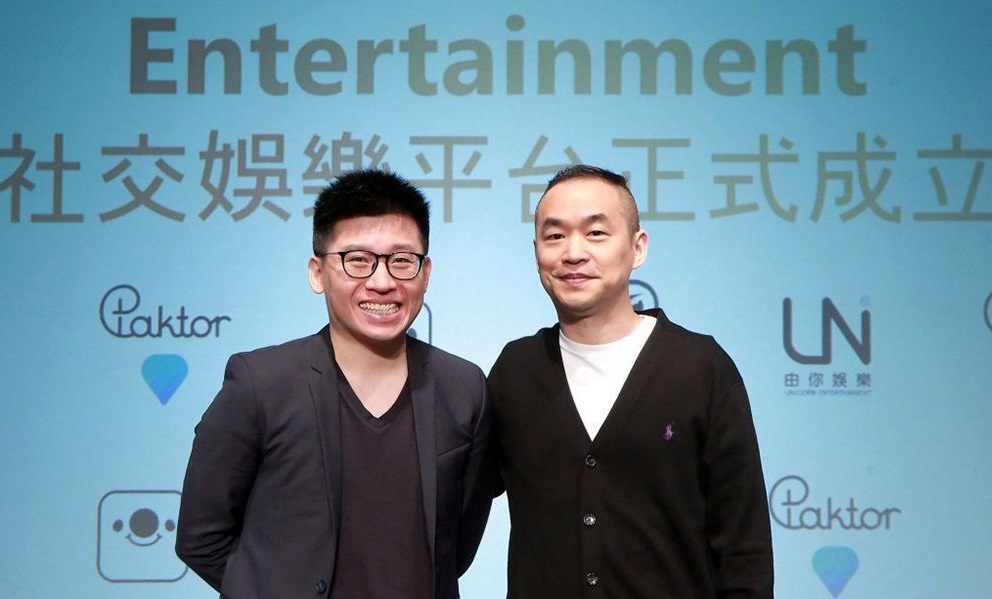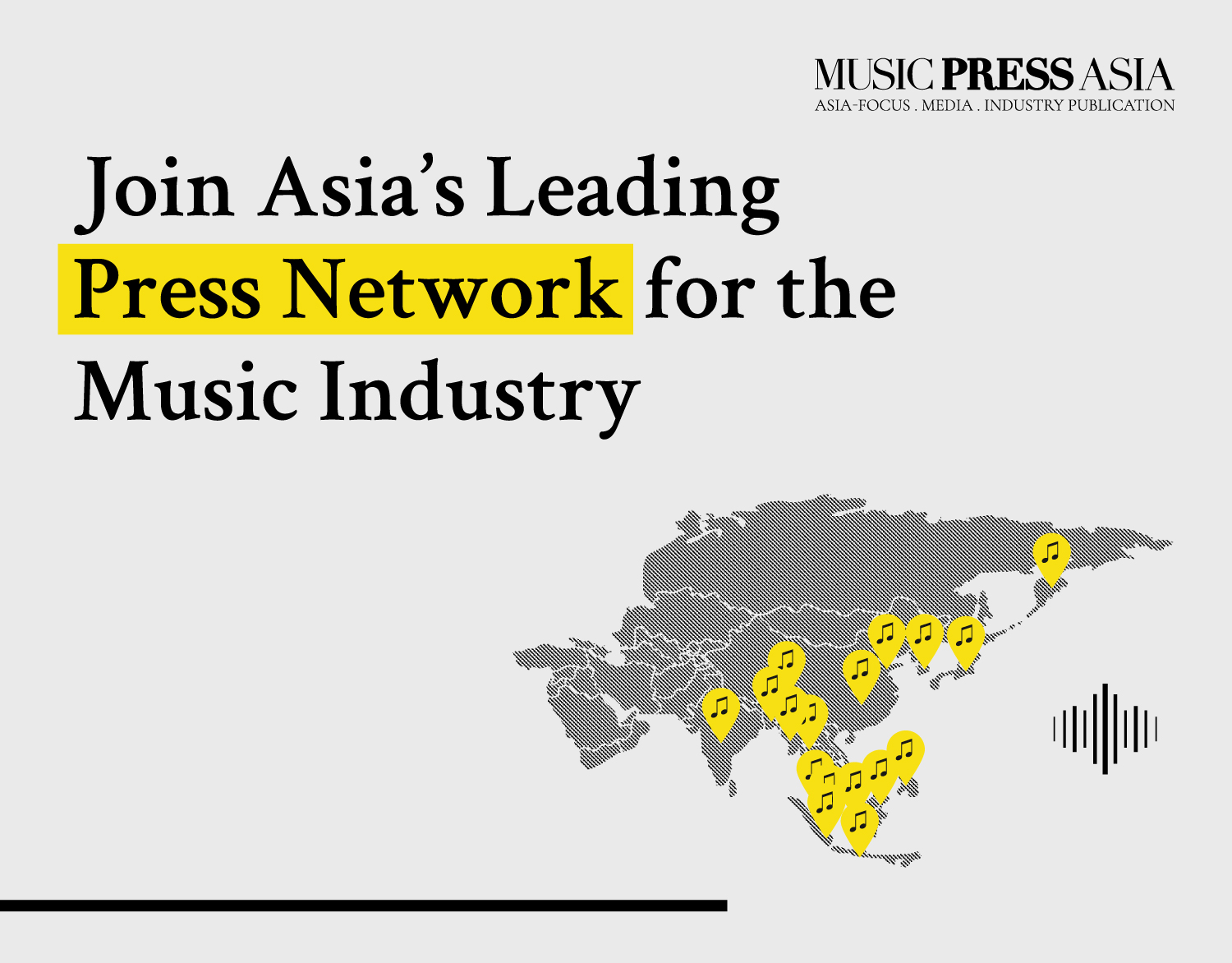With Profit Revenues Reported Is M17 Entertainment Cruising Forward in Good Health?
Health-checking the largest private entities that takes on almost 20% of market value in livestreaming, what lies ahead a bright future in social e-commerce, digital content and service merchandising? Music Press Asia speaks to Joseph Phua, CEO of M17 Entertainment for more insights.
Health-checking the largest private entities that takes on almost 20% of market value in livestreaming, what lies ahead a bright future in social e-commerce, digital content and service merchandising? Music Press Asia speaks to Joseph Phua, CEO of M17 Entertainment for more insights.

Music Press Asia / Interview / Joseph Phua, CEO of M17 Entertainment. Photo credit: M17 Entertainment.
Like any new beginnings and challenges that come with, this is a story of resilience, astounding courage in difficult times, and ultimately why pulling the trigger is just as important and bold as going forward with an IPO, even at the very last moment.
In a detailed executive spill ‘M17’s ill fated IPO: CEO reveals all’ with Tech In Asia, Joseph Phua talks about the excitement going IPO: from ascending the podium at Wall Street’s power house — the New York Stock Exchange, ringing the bell, to deciding the indefinite suspension of the company’s IPO and recuperating from the backlash.
Overnight, M17 became the first Taiwanese company in NYSE history over the last 10 years that rang the bell, but not trade. A momentous event nonetheless, the series of events that followed, thereafter, stamped a crucial point in the lives of those who were directly related to M17 at the time, their employees.
“We never thought that we’re going to be successful. There’s no chance to think and successfully prove that your hypothesis is perfect until you’re proven wrong.” Joseph Phua, CEO of M17 Entertainment.
Creating attention for the world…In a recent interview with Music Press Asia, CEO of M17 Joseph Phua said, “We want to be the global champion for anything to do with live entertainment. When I started Paktor, the goal was to build products that I’d use, the people around me would like and enjoy, and that I could build a business around it.”
And perhaps this is just what Jeffrey Huang sees in Phua. Assembling a team that demands indelible herculean spirits can be an arduous life-time undertaking. And so, as much as it is too early to tell how long this merger will last, Phua and Huang has definitely see good in each other. A journey that Huang resonates well with, and isn’t too dissimilar to the rough goings of the music industry — in which he’d spent as an artists and owning a music agency.
“What he realized very early on is, within the music industry, that money is locked away from artists. So, Jeff wanted to build a platform where talents including artists and musicians would come and create content, and eventually, be rewarded without having layers of revenue cut in between. That was how 17 Live began.”
The Turning Point… So, let’s fast forward back to the future of 2016. What was it that really caught the attention of its shareholders and investors in the first place? With the merger of two strong online startups, it was only inevitable that interest soon caught up. Interest that seem attractive and inexorably serious enough to involve influential institutions such as Deutsche Bank and Citibank in its preparation for IPO.
However, the process was short lived. In a turn of events that followed after, M17 has not only retracted from going IPO, its ‘golden moment’ arrived in the form of a US$35 million credit line which took place within 24 hours of returning from the media glare and disparaging outcome at Wall Street.

At the height of the moment, as much as it may seem a move too pompous as some would say for a young company to go IPO. It was the striking support that came after from its loyal existing investors that truly marked the potential and impression M17 has made thus far.
Of course, it is inevitable to recover perfectly, perhaps, even too early to tell for what lies ahead in the future. Like most companies that undergo similar ordeal, retrenchment and disposing of experimental or creative divisions seem the most logical act then.
Moving forward…Since, M17’s journey has been telling a story of great strides. Today, with over 40 million users on its platform, it’s no longer just livestreaming its content to the world. It is building its very own ecosystem in livestreaming — from partnering with music labels and producing singles and albums, to releasing its very first movie with 20th Century Fox, a subsidiary attached to one of the largest film company globally, the Walt Disney Studios.
Not only have they been scrutinised: having reported US$38 million of revenue in Q1 2018, and suffering a US$27 million operating losses — explained as investment in Japan and granting of employee stock ownership plans — M17 endured and suffered simply from what we all see as pre-teenage dilemma; a tell-tale sign of growth.
Did going IPO come too soon for a new company like M17? And have growth been accelerated for financial gains for a short term market projection? If we choose to forget about the financial market for a moment and go back to how it all began, it was Phua, along with his co-founder Jeffrey Huang, who are the ones still keeping its very initial vision alive.
“The product that we’re now talking about,” beckons Joseph “…isn’t just a platform per se, it all about the content, just like when you’re using a dating app. It’s the connection you’re making.”
Content comes alive…Inherently, with over 20,000 talents across Malaysia, Singapore, Hong Kong, Taiwan, Japan, USA, Indonesia and the Middle East, M17 is on the path to becoming the largest talent agency in the world of social entertainment. In Malaysia, they have already partnered with Tashi Media Sdn Bhd with the aim to manage talents and eventually create value through great content production.
Beyond creating content, making money and hitting the big screens, the livestreaming application continues to aspire hope and the taste of success to over 40 million users today.
“Look, back in the days, people would create and perform on the street. In itself, the performance is the earliest and most influential ancient form of live stream. Then they move it to television and radio before the Cloud emerged. And now, we have a different version merging live and streaming.”
“Seeing value in content and creating a business through transmitting these content, the digital market is just beginning to enjoy what we’d conservatively explain as modern television — of what mass content dissemination across different channels truly means.”
Partnership with content creators…In reality, does it take only two to five minutes to create a positive impression? Apparently it does, as seen by Avex. Citing a K-pop management style, Avex sees just that potential.
“So, we’re all just conveying the same content information, only in different formats,” said Phua. “And Avex sees it perfectly well….What they see [in us] is that we have over 10,000 talents — which means we’re the best place to source and foster raw talent.”
“Avex understand that a traditional talent agency can’t possibly manage 10,000 talents at one time. Ten would probably be a more reasonable number. So, what we [M17] did was to act as a funnel for them and its great because our talents want to get to Avex as it is their dream to work with music labels.”
So, how unique and sustainable is the merger of two specialization that combines Paktor and 17 Media — one that aims at making special connection [Paktor] and the other, at cutting the red tapes of revenue making for digital content creator [17 Media]?
Albeit the fact that the world is now consuming a large amount of content digitally and live, it is the originality from the myriad cultures of Asia that keeps the demand coming. In another word, the value of localized content that continue to keep demands alive.
“As much as we like to believe, humans are very similar. As I’ve learned over the last six years, whatever I’m thinking about now there would probably be 10,000 other people, somewhere in the same time zone, thinking about the same things. However, it is true that it is culture that makes the difference to the type of content that people like to consume.”
So, what are the certainties up ahead for a livestreaming company such as M17? And how have they fared in this ordeal and moving forward?
Needless to say, there will always be ‘bumps’ along the road. The questions to ask shouldn’t be on how bad it is picking itself up or even how much its revenues are. Realistically, it is perhaps to do with the far-sighted appropriation of mature perspective into the livelihood of how one terms a ‘healthy’ business.

Answering Music Press Asia’s question to what M17 truly means to Phua today? Motioning forward as to suggest what can be done in the present, Phua convincingly uttered: “It [M17] evolves and continue to evolve. It’s an opportunity for us to serve the people and industry around us.…to build something that we love.”
“We never thought that we’re going to be successful. There’s no chance to think and successfully prove that your hypothesis is perfect until you’re proven wrong.”
Phua believes that the industry of generating and improving tools for entertainment content for mass consumption, irrespective of its relevancy to other industries, will be here to stay.
“One of my team member once said that the new media is our phone now. And as long as people continue to create and innovate, I don’t think they’ll ever be a time where we’ll stop. Change is inevitable on how we will consume content, but it’ll definitely not disappear.”
And just like dating, digital content consumption will only be consumed through various formats. For over centuries, businesses have evolved catering to just that. And this time, more globally as we would have thought possible.
Following the three core pillars at M17 — Live Entertainment, Content Investment and services — it’s gradually settling in as it seems; in facilitating the process of content creation, consumption, talent development and creating meaningful connection.
In its aim to rise as the largest live technology and entertainment content player in Developed Asia, M17 has also launched HandsUp, a business-to-business live and social commerce SaaS product that increase and ease live/social e-commerce via simplified visual story telling.
Last year it raised US$25m in funding from investors including Temasek subsidiary Pavilion Capital. So, why are there interest from investors from the first place? M17 is fast becoming an APAC asset in its developed technologies to create a profitable and beneficial ecosystem in social entertainment and service business. And improving its livestreaming tools and building on its list of influencer and merchandising may just be the beginning of more to come.
Today, Paktor is projected to earn US$323 million in net revenue and US$323 millin in gross merchandise volume by end of 2019. Increasing employees rate from 750 to 1,000 people, M17 is also expecting a monthly profit of between US$2 million and US$3 million within the same time frame.




